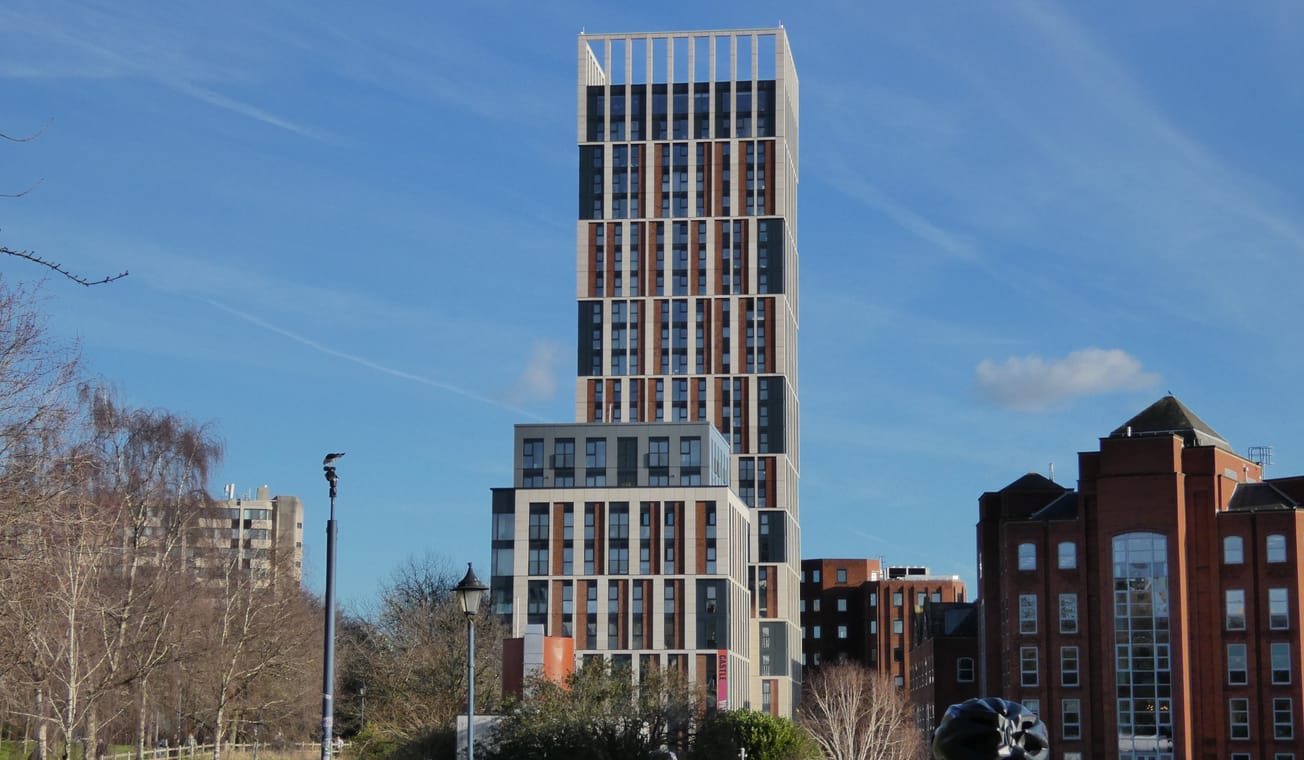As part of Comment's Epi-green Week, Phoebe Chase celebrates Bristol's brilliance as a green city doing its bit to tackle climate change, but argues the Uni should be doing more to publicise Green issues.
Bristol is a city beloved by all its residents, and it's many unique quirks set it apart from the many less impressive cities in the UK (cough Birmingham cough). Bristol's most important feature is in my opinion the city 'poo bus', that runs entirely on biomethane gas, fuelled by human and household waste. On its side is plastered a delightful piece depicting imaginary residents of Bristol appearing to be thoroughly enjoying themselves while sitting on their respective toilets. Bristol is undeniably a 'green' city. However, in this time of climate change crisis, is it doing enough to be as environmentally friendly as possible? Is a poo bus sufficient to transform our city and reduce our carbon emissions?
"In 2015 Bristol claimed the prize as Europe's Greenest capital, marking it as the only UK city to achieve this"
According to The Guardian, Bristol is the 3rd greenest city in the UK, just behind Glasgow and Edinburgh. Additionally, Bristol Green Week is returning this June 2018. Events and talks to raise awareness suggests that Bristol is pushing again to broadcast itself as a progressive, environmentally conscious capital, as it has been viewed in past years.
From planting a tree in your garden to volunteering to reforest the city, Tom Stevens suggests 7 ways to help plant trees to make Bristol the greenest city in the UK. https://t.co/Y1OqysPaa7 #Bristol #Volunteering #TreePlanting #GreenCity #Sustainability #Environmental pic.twitter.com/lejHLTzP3S
— Ecojam Bristol (@bristolecojam) February 23, 2018
Since 2010 the majority of winners of the European Green Capital Award have been cities in either Germany or Scandinavia. However, in 2015 Bristol claimed the prize as Europe's Greenest capital, marking it as the only UK city to achieve this. The requirements, according to the awards website are:
- 'Demonstrate a well-established record of achieving high environmental standards
- Commit to ongoing and ambitious goals for further environmental improvement and sustainable development
- Be a role model - part of an ever growing group of cities that aim to inspire and promote best practices to all European cities.'
"It appears that the city could be doing more to create a less polluted, safer environment for its population"
However since then Bristol seems to have failed to keep up with any 'ambitious' goals as stated in the requirements, and slipped off the map slightly in establishing itself as a green pioneer. With Bristol Green Week put on hold in 2017, it appears that the city could be doing more to create a less polluted, safer environment for its population.
The University of Bristol however has been doing well in taking steps to be more green. Robert Kerse, Chief Financial Officer at the University of Bristol, announced earlier this month that the university has achieved its goal 'to end investment in companies that derive more than five per cent of their turnover from the extraction of thermal coal or oil and gas from tar sands by January 2018.'
This is a grand victory for the university, as is their pledge to aim to become carbon neutral by 2030. The Green Impact Scheme seems also to be a successful way of achieving their goals. The scheme is for staff and students to work in teams to 'reduce our collective environmental impact' during their time at university. The object of the sustainability department is also to provide services to reduce excess on energy, water, transport and waste. The University of Bristol website provides large amounts of information on sustainability and reducing impact on the environment, if you know where to look for it.
"If one doesn't religiously read the student paper, how can one find out about important changes implemented at our university that will either exacerbate or reduce our impact on the environment?"
Knowing where to look for this information is the issue. The university is not doing enough to make news on these issues readily available to its students. Nowhere around lecture halls or in study spaces have I seen posters or notices spreading awareness about The Green Impact Scheme, nor stating the goals of the sustainability office. Only one article in Epigram has been published on the university's successful divestment from fossil fuel giants, and I can find no other information that has been circulated about it. I write for Epigram and yet I did not see this article until it was sent to me by an editor. If one doesn't religiously read the student paper, how can one find out about important changes implemented at our university that will either exacerbate or reduce our impact on the environment?
"Bristol is definitely on the right track in reducing its carbon footprint, but they are failing at publicising these achievements."
Having spoken to fellow students about what they know of what the university is doing to help the environment, a concerning amount of people know next to nothing about what is going on. Bristol is definitely on the right track in reducing its carbon footprint, but they are failing at publicising these achievements. Epigram's green issue is a good start. However, climate change and the concerns around it is a constant and ongoing issue, not something we can write off as done and dusted after one publication. It is difficult to tell whether students are merely unaware of the steps that are being/should be taken to combat climate change in Bristol, or whether they just don't care. Regardless, they should be given the chance to understand. It is the job of those with a platform to make others aware of these issues and what can be done to improve them, as well as give them the opportunity to become more involved in making the university greener. More information from the university on an easily accessible level would surely help with this problem.
Wow! In #Bristol you can take a ride on a double-decker bus that runs on #biogas https://t.co/xRil0GN7vI pic.twitter.com/MfBI9HPsZz
— GasNaturally (@GasNaturally) August 22, 2017
If the Marxist Student Federation can religiously stick flyers to every available surface each week than so can others. Posters around our halls and lecture theatres, or emails explaining current events and issues that need addressing would be an appropriate start in encouraging more students to become involved in helping our university reduce its carbon footprint. For some, spreading awareness about pollution and climate change is a passion and hobby. However for many it takes more encouragement to participate in these activities. Fighting climate change in our everyday lives through small acts that reduce our impact on the earth should not just be a hobby for some. It should be something that we all invest in.
Unfortunately we all live on the same earth. This means some effort should probably be put in by all. As some people, such as one whose name sounds like Ronald Stump, aren't putting in anything at all it is up to the rest of us to make up for his many, many, many shortcomings.
Featured image: Unsplash / Karsten Wurth







